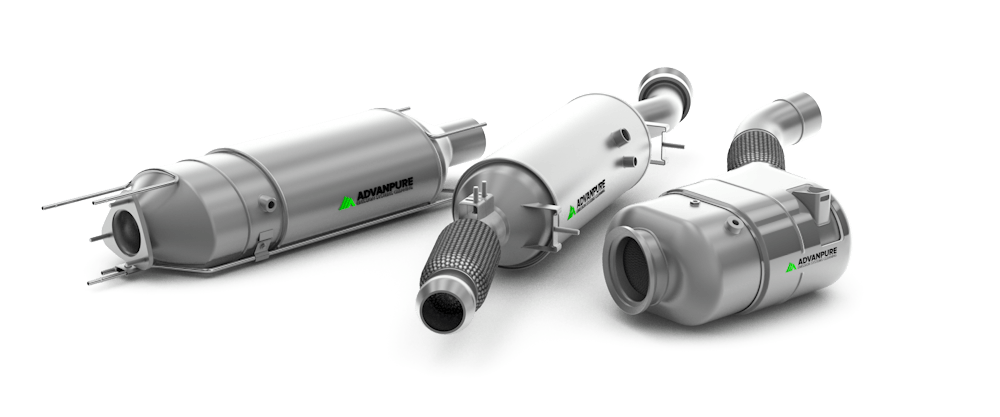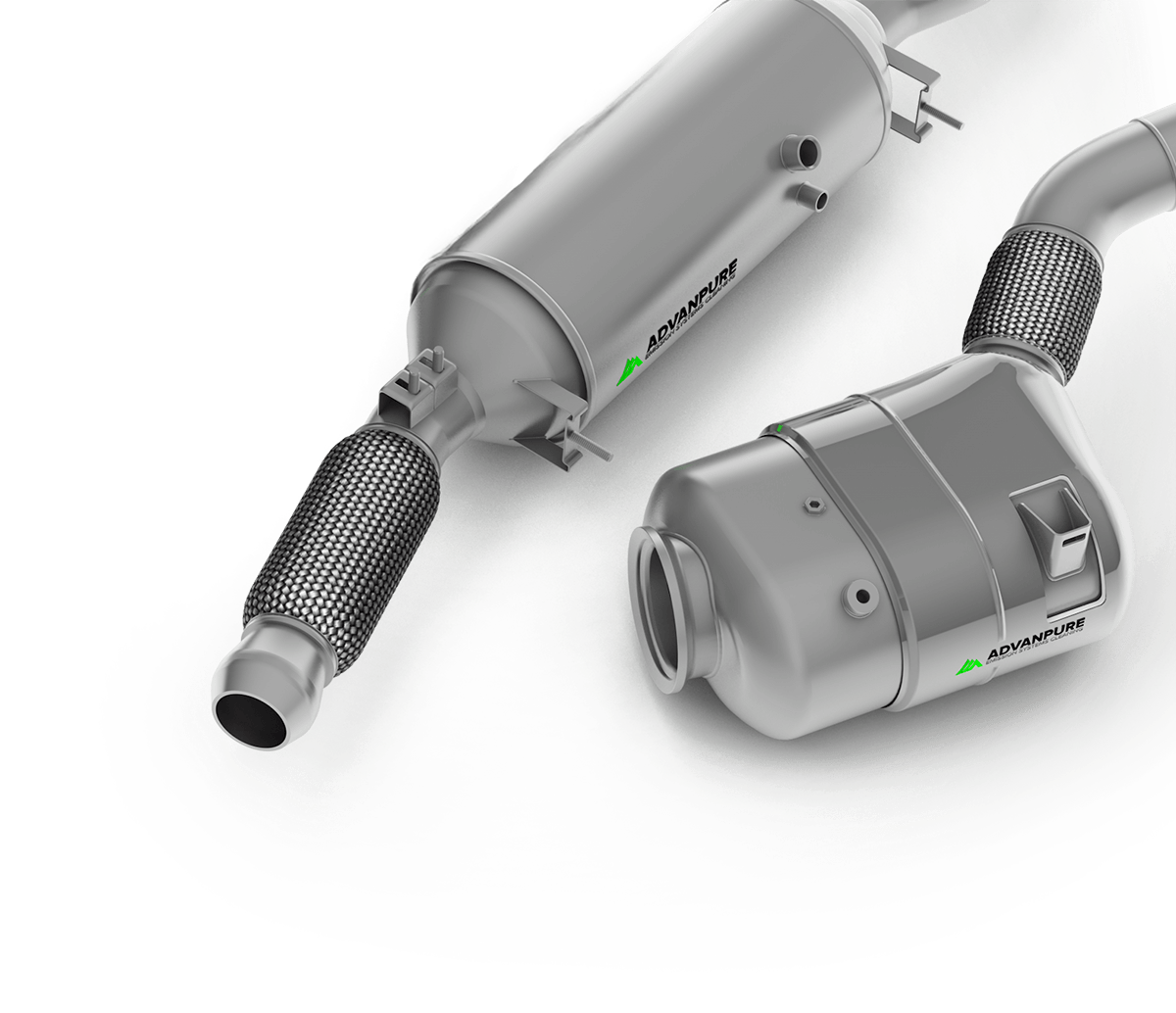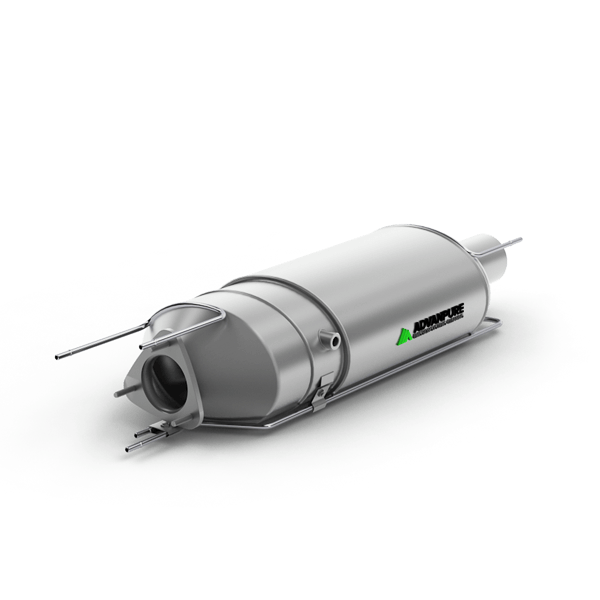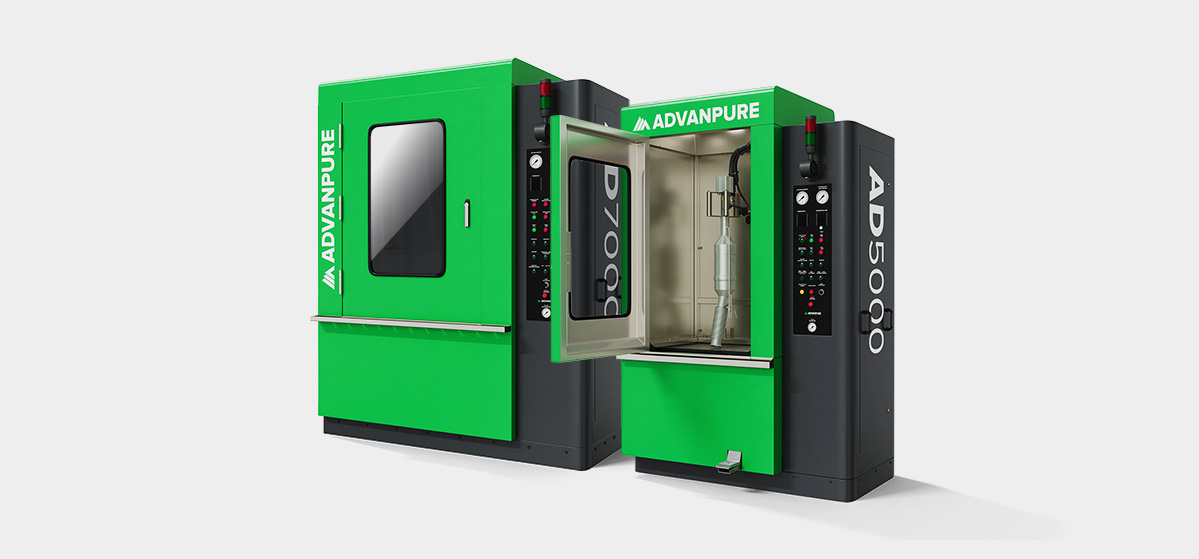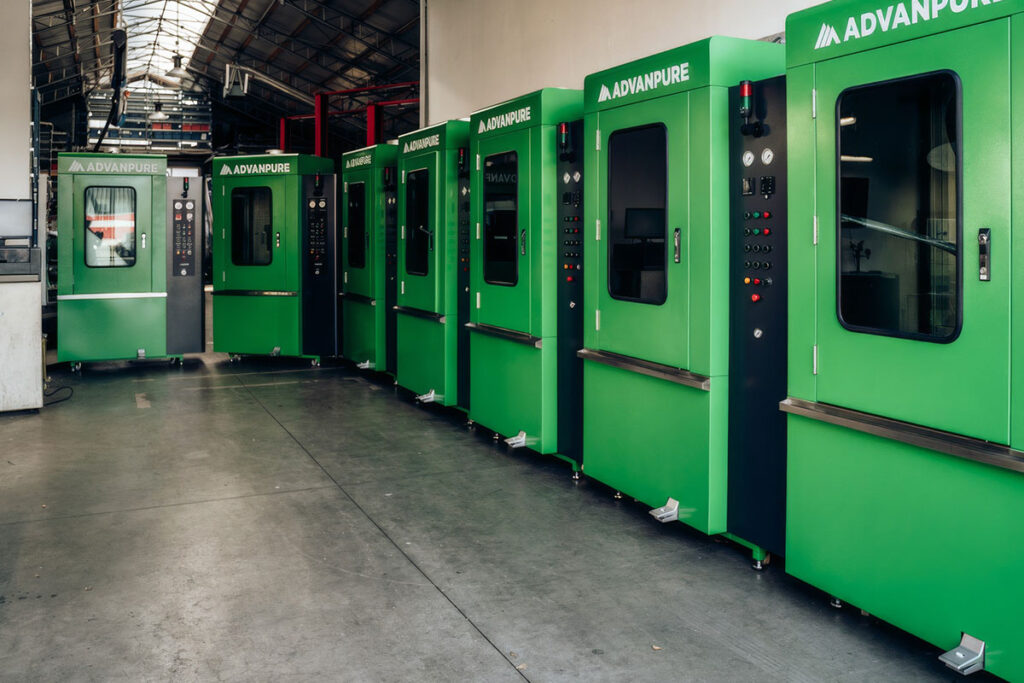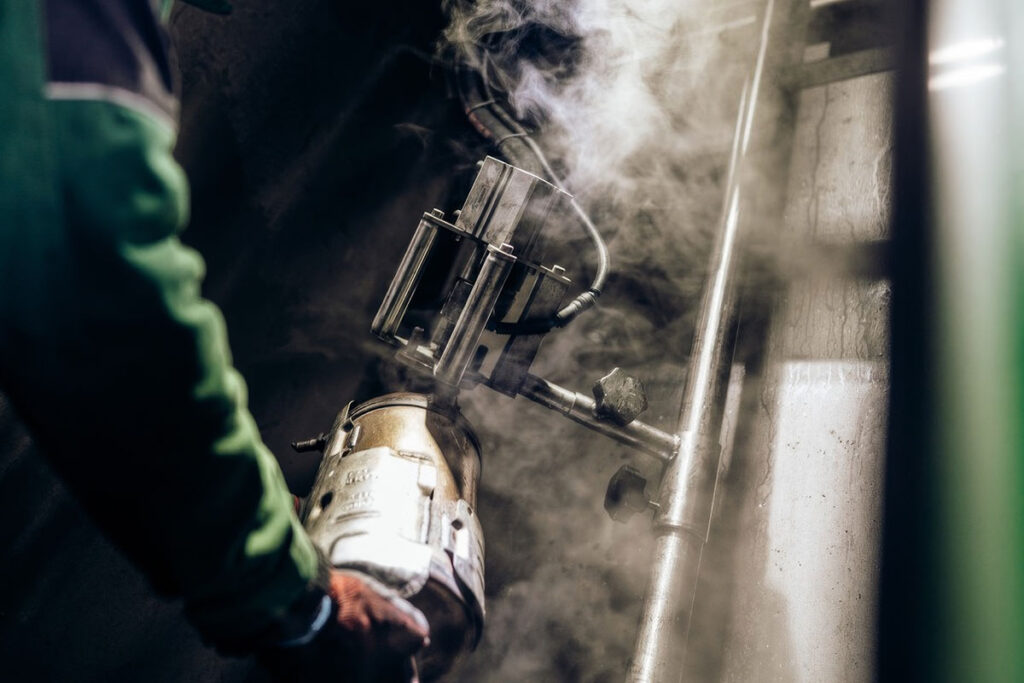Why Choose DPF Cleaning with Advanpure?
Industry Leader in DPF Cleaning with Over 30 Years of Experience
Advanpure touts more than 30 years in the field of exhaust after-treatment. Our history goes back to 1988 when Baumot AG was founded—a pioneer in the field of particle filtration. Today, more than 60,000 retrofit particle filters in on and off-road applications, and an average of 2,600 cleaned filters per year, are proof of the high level of expertise the industry can call upon.
This knowledge is reflected in the development of our in-house developed cleaning machines, which enable gentle yet highly efficient cleaning, achieving up to 98% efficiency – nearly comparable to a new filter. Our service stands for the highest quality, supported by experience unmatched in the industry.
-
Certified KBA ManufacturerAdvanpure is not only a cleaner, but also a manufacturer of particulate filters with KBA approval.
-
30 Years of Experience30 years of experience in exhaust gas aftertreatment with over 60,000 retrofitted particulate filters and 2600 cleanings per year.
-
In-house developed cleaning machineThe entire know-how flows into the development of our own cleaning machines and leads to gentle cleaning with maximum cleaning efficiency.
-
No loss of warrantyThe cleaning process works without any changes to the design ("cutting open the filter") and therefore does not invalidate the warranty.
Cleaning settlement
A clean diesel particulate filter in four easy steps
Remove Filter
Remove diesel particulate filter or have it removed by a service partner and then pack it safely.
Comission Cleaning
Order the cleaning and pick-up by telephone or cleaning form.
Cleaning
We pick up your filter, clean it and send it back to you including a cleaning protocol.
Install Filter
Reinstall the cleaned diesel particulate filter or have it installed by a service partner.
DPF check in 30 seconds
Find out if your DPF needs to be cleaned
What are the benefits of DPF cleaning?
Save costs & avoid engine damage
-
Cost savings Cleaning is significantly cheaper than replacing the filter.
-
Performance improvement A cleaned filter enhances engine performance and reduces fuel consumption.
-
Extended lifespan Regular cleaning prevents costly repairs and extends the filter’s lifespan.
-
Prevention of engine damage A clogged filter can cause serious engine damage—timely cleaning helps protect against this.
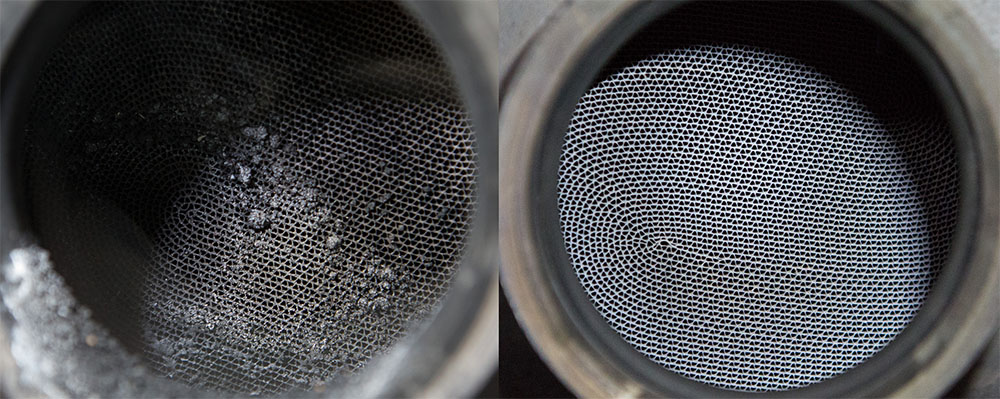 DPF before and after cleaning
DPF before and after cleaning
We clean your particulate filters across Europe and Germany
DPF cleaning near you
Do you need assistance with the installation and removal of your particle filter? No problem.
Our Europe-wide partner network is available at all times and helps you with the complete cleaning procedure, from demounting through shipping to the installation into your vehicle.
Find a DPF cleaning partnerWe clean all types of diesel particulate filters.
Save costs & avoid engine damage

Diesel particulate filters for cars, vans & motorhomes
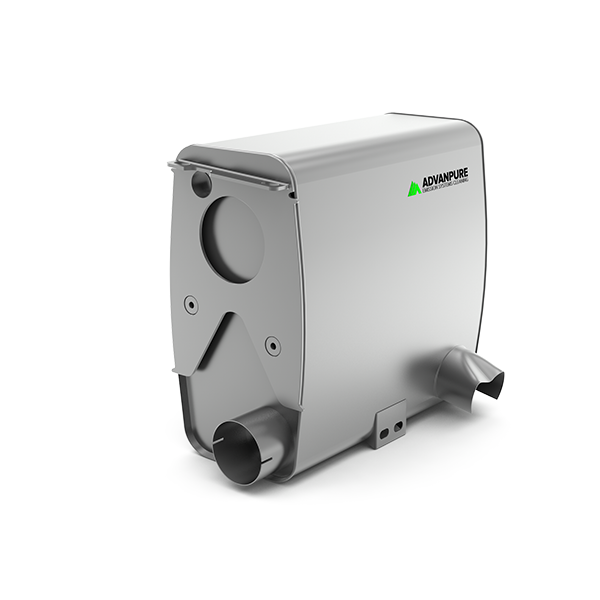
Diesel particulate filters for trucks & buses
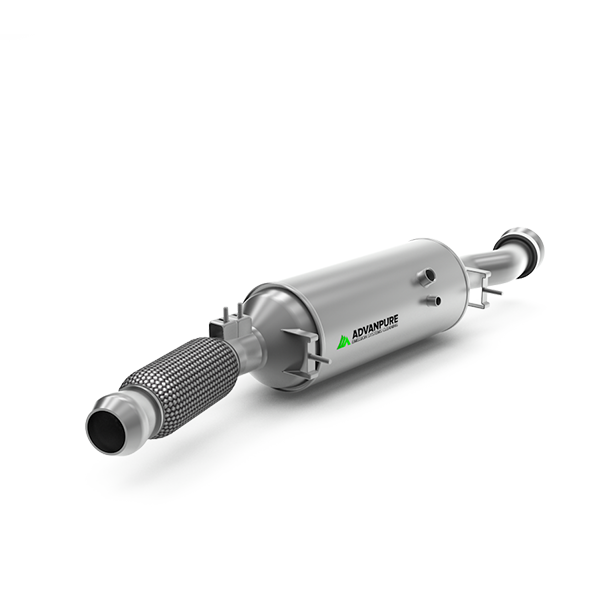
Petrol particulate filter (OPF)
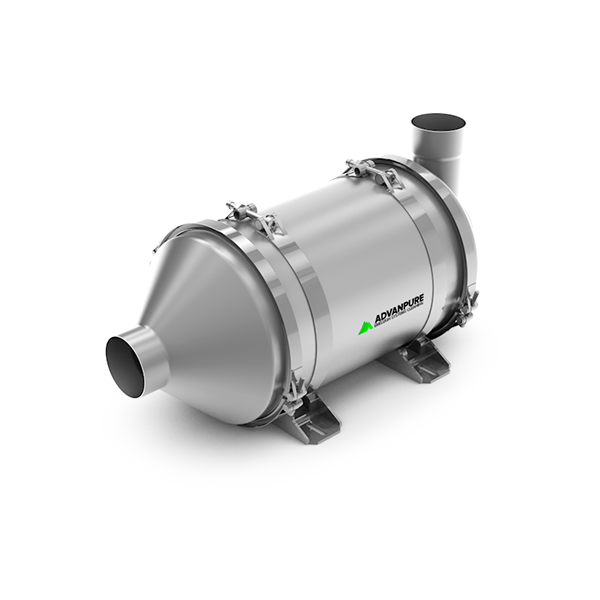
Diesel particulate filters for construction & agricultural machinery
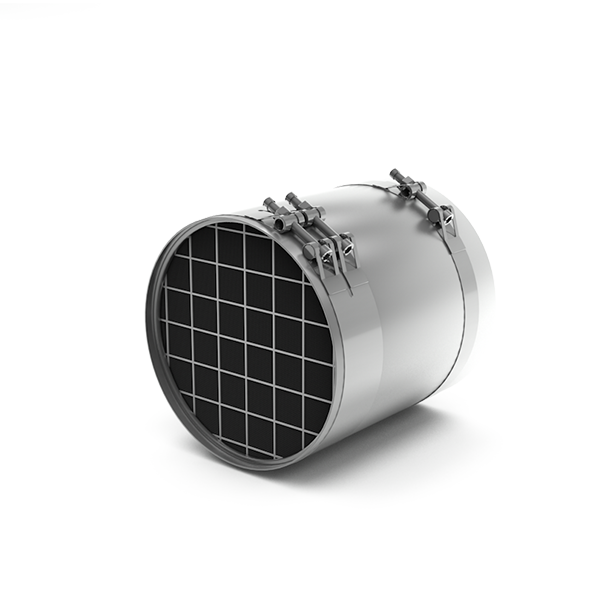
EURO VI SCR combination filter
What our customers say
Learn how customers experienced the DPF cleaning service of Advanpure
What are the alternatives to particle filter cleaning?
More expensive replacement or regeneration drive
When the particulate filter is clogged, there are essentially two alternatives to professional cleaning:
Regeneration Drive (Driving Clean):
DPF regeneration allows the soot accumulated in the filter to be burned off by driving at high engine performance. Often, a 15–30 minute highway drive at a constant speed (around 120 km/h) is sufficient. The exhaust temperature reaches around 600 degrees, which “burns clean” the filter. The downside: regeneration only removes the soot, not the ash that accumulates in the filter over time, leading to clogging in the long term.
Replacement of the Particulate Filter:
A clogged particulate filter can also be replaced. However, replacement involves high costs, often in the four-digit range. This option is usually recommended by manufacturers if the filter is irreparably clogged. For many vehicle owners, however, this is an expensive alternative.
Cleaning DPF yourself?
DPF cleaning machine for workshops and fleet operators
Do you run your own workshop and want to expand your services and increase revenue? Or do you manage a fleet and want to reduce downtime? Owning your own particulate filter cleaning machine offers the ideal solution.
Current articles on the subject of DPF cleaning
Updates from our Blog
Frequently asked questions about DPF cleaning
-
1. Why does a diesel particulate filter need to be cleaned?
A diesel particulate filter (DPF) filters harmful particles and soot from the exhaust gases of a diesel engine. Over time, the filter becomes clogged as more and more soot particles accumulate. Regular cleaning of the diesel particulate filter is necessary to maintain engine performance, reduce fuel consumption and prevent damage to the engine. A clogged particulate filter can also lead to high repair costs, as it puts the engine under pressure and can lead to engine damage in the long term. Clean exhaust gas purification is also important in order to comply with legal exhaust emission standards.
-
2. How often should a diesel particulate filter be cleaned?
The frequency with which a diesel particulate filter should be cleaned depends on various factors, such as the driving style and operating conditions of the vehicle. As a rule, a particulate filter must be cleaned or replaced approximately every 100,000 to 200,000 kilometers. However, the filter can become clogged more quickly with frequent short journeys, as the automatic regeneration of the filter is not fully carried out. It is advisable to have the soot content in the particulate filter checked regularly to determine the optimum cleaning frequency.
-
3. What does DPF cleaning cost?
The cost of professional diesel particulate filter cleaning is significantly cheaper than purchasing a new DPF. At Advanpure GmbH, the price for cleaning a passenger car DPF is €299.00 gross, including UPS pick-up and delivery service. For commercial vehicles such as trucks, buses or construction machinery, an individual offer is drawn up that is tailored to the respective requirements. In any case, DPF cleaning is a more economical alternative to buying a new one, which can quickly cost several thousand euros depending on the model.
-
4. How can I tell if my DPF is full?
A clogged particulate filter manifests itself through various symptoms. The most common signs are
- Loss of engine power: The engine reacts sluggishly and the power is noticeably reduced.
- Increased fuel consumption: A clogged filter leads to inefficient fuel consumption.
- Warning lights in the dashboard: Modern vehicles are often equipped with a sensor that indicates a blockage in the filter.
- Increased exhaust pressure: A clogged diesel particulate filter can lead to increased exhaust back pressure, which puts a strain on the engine.
It is important to take these warning signs seriously and have the particle filter cleaned or replaced to avoid major damage.
-
5. How can I clean the DPF myself?
Self-cleaning of the particulate filter is possible, but requires caution. A simple method is known as regeneration, in which the filter is brought to high temperatures in order to burn off the soot particles. This can be done on the highway by driving at a higher speed for a longer period of time. There are also special cleaning agents for particulate filters that are mixed into the fuel to dissolve the soot particles in the filter.
Special particle filter cleaning sprays can be used for more thorough cleaning without removing the filter. These are sprayed directly into the filter via a probe. If these measures are not sufficient, the filter may need to be removed and professionally cleaned or replaced.
-
6. Is it possible to clean the DPF without removing it?
Yes, a diesel particulate filter (DPF) can be cleaned without removal, but the results are highly dependent on the method and the degree of contamination of the filter. Two common methods for DPF cleaning without removal are manual regeneration and the use of particulate filter cleaners.
1. manual DPF regeneration
In manual DPF regeneration, the particulate filter is cleaned using high exhaust gas temperatures, which burn off the soot in the filter. This method can be carried out by driving for a longer period at higher engine speeds on the highway or by initiating the regeneration in the workshop. Disadvantage: This type of regeneration only removes the soot particles, but not the remaining ash residue, which accumulates in the filter over the long term. In the case of very heavily clogged filters, manual regeneration can be insufficient and lead to an uncontrolled rise in temperature, which can damage the filter or the engine.
2. particulate filter cleaner in the fuel
A particulate filter cleaner is added to the fuel and dissolves deposits in the filter while driving. These cleaners are easy to use and can occasionally reduce soot deposits. Disadvantage: This method often only has a limited effect on heavily clogged filters and can lead to additional residues in the system if used incorrectly. Furthermore, cleaning agents often do not achieve the efficiency of comprehensive wet and thermal cleaning.
-
7. What happens if I don’t clean my DPF in time?
A diesel particulate filter (DPF) that is not cleaned in good time leads to serious problems in the long term. The particulate filter becomes clogged with soot particles that accumulate with every combustion process. This has the following consequences:
- Reduced engine performance: The engine can no longer “breathe” properly, which significantly impairs performance and efficiency.
- Increased fuel consumption: A clogged particulate filter puts a strain on the engine and forces it to work harder, resulting in higher fuel consumption.
- Damage to other engine components: High exhaust back pressure can damage the turbo and other engine components, resulting in costly repairs.
In the long term, a clogged diesel particulate filter (DPF) can even lead to engine damage. To avoid expensive repairs, it is crucial to clean the particulate filter or free the DPF in good time.
-
8. How does the cleaning of a diesel particulate filter work?
A diesel particulate filter is cleaned in a three-stage process that has been specially developed to ensure the highest degree of cleaning, even for heavily clogged filters. Our process combines a thermodynamic cleaning method with wet cleaning, which enables thorough and gentle particle filter cleaning. Further details on cleaning can be found in the article on the thermodynamic particulate filter cleaning process at Advanpure.
Step 1: Wet cleaning
To begin with, the filter is treated with a special wet cleaning process. This involves flushing the particulate filter (DPF) with heated water and cleaning additives in order to loosen firmly attached particles. Due to the hydraulic properties of the water and the addition of cleaning additives, impurities are removed more intensively than with pure air cleaning. For additional cleaning effects, the filter is also blown through with targeted blasts of compressed air during the rinsing process.
Step 2: Thermodynamic cleaning
The second step is the main cleaning using a thermodynamic process. Here, the filter is treated with a controlled flow of hot air, which thoroughly cleans the surfaces. During the entire process, temperatures and pressure are continuously monitored and documented to prevent damage. The cleaning time is around 30 to 60 minutes, depending on the degree of soiling and the size of the filter.
Step 3: Quality control and documentation
After cleaning, a comprehensive quality check is carried out, during which the filter is weighed and a pressure measurement is performed. All data is stored in a QM database. Our customers also receive a complete cleaning log containing all relevant information on the condition and cleaning of the filter.
-
9. How long does it take to clean a DPF?
Cleaning a DPF usually only takes a few hours. Car diesel particulate filters that arrive at our premises by 10 a.m. can be collected or dispatched by 4 p.m. on the same day. Filters that we collect by UPS Express arrive the next working day, are cleaned immediately and sent back the same day by UPS Express. They are then returned the next working day by 12 noon at the latest. This fast DPF cleaning and return service is ideal for vehicle owners who need to use their vehicle again quickly.
-
10. Can every DPF be cleaned, or are there exceptions?
Not every diesel particulate filter can be cleaned. In some cases, the filter is so badly clogged or damaged that cleaning the particulate filter is no longer effective. Possible exceptions:
- Severe mechanical damage: If the filter is damaged internally, it should be replaced.
- Excessive ash deposits: While soot deposits can normally be burned out, ash deposits are difficult to remove. If the ash content in the DPF is too high, replacement is often the better choice.
- Thermal damage: High exhaust gas temperatures can damage the filter, which impairs its functionality and makes cleaning ineffective.
It is advisable to have the condition of the DPF checked by a specialist to determine whether it needs to be cleaned or replaced.
-
11. Does cleaning affect the service life of the DPF?
Cleaning a diesel particulate filter does not impair the service life of the DPF, but actually extends it. Professional DPF cleaning removes deposits of soot and ash that reduce filter performance. Complete cleaning improves the exhaust gas permeability and reduces the exhaust gas back pressure, which relieves the filter and extends its service life. Thermodynamic cleaning in combination with wet cleaning (see Advanpure article) ensures that all particles are removed without damaging the filter’s sensitive ceramic core.
-
12. What are the risks involved in cleaning DPFs?
The risks of diesel particulate filter cleaning depend heavily on the method used. Non-professional cleaning, especially chemical cleaners or uncontrolled free-burning processes, can cause damage to the filter material. Some risks include:
- Thermal damage: An uncontrolled increase in temperature can damage the ceramic structure in the DPF.
- Residues in the filter: If inferior cleaning agents are used, residues may remain in the filter, which impairs the filter performance.
- Mechanical damage: Improper handling during installation and removal can also lead to damage.
A professional process, such as that offered by Advanpure, uses controlled thermodynamic cleaning with wet rinsing, in which the temperatures and back pressure are continuously monitored. This minimizes the risk of damage and ensures safe, thorough cleaning.
-
13. Can DPF cleaning improve the exhaust gas values?
Yes, a thorough DPF cleaning can significantly improve a vehicle’s exhaust emissions. A cleaned diesel particulate filter ensures optimum exhaust gas flow and significantly reduces the emission of harmful particles. By removing the accumulated soot and ash deposits, exhaust emissions are reduced, which contributes to compliance with legal environmental regulations and also increases the likelihood of the vehicle passing the emissions test.
-
14. How can I prevent my DPF from clogging?
To prevent the diesel particulate filter (DPF) from clogging, there are some effective measures that protect the filter and reduce the likelihood of clogging: 1. Regular highway driving at higher engine speeds The DPF regenerates at high temperatures, which are reached especially during longer trips on the highway. Drive occasionally at higher engine speeds to burn off the DPF and prevent soot deposits. This allows the soot in the filter to burn itself off and the filter remains functional for longer. 2. use suitable fuel and particulate filter cleaner Use high-quality diesel and, if necessary, special DPF cleaners added to the fuel. These cleaners support the regeneration of the DPF and help to dissolve soot particles in the filter. Caution: Only use such additives occasionally to avoid residues in the filter. 3. avoid short journeys Frequent short journeys prevent the DPF from reaching the operating temperature required for regeneration. If possible, you should reduce short journeys or supplement them with a longer journey to allow the diesel particulate filter to regenerate regularly. 4. have regeneration started manually Have a manual DPF regeneration carried out in the workshop from time to time. Manual regeneration is particularly useful for vehicles that are mainly used in city traffic in order to remove stubborn deposits and extend the service life of the DPF.

